Seven UG and UMCG researchers awarded Vidi grant
The Dutch Research Council (NWO) has awarded a Vidi grant of up to €800,000 to Laura Baams, M.J. Bonder, Ranko Gacesa, Kristina Haslinger, Julian Koellermeier, Cyril Moers, and Adrià Rofes. With this grant, the researchers can develop their own innovative five-year research plans and establish their own research groups.
Vidi grants are intended for experienced researchers who have been conducting successful research for some years after gaining a PhD. Alongside the Veni and Vici grants, the Vidi grant is part of the NWO Talent Programme. Within this programme, researchers are free to submit their own topics for funding. In total, 829 researchers submitted their research proposals in the hope of acquiring funding during this round of Vidi applications. 102 of these proposals were honoured.
UG/UMCG researchers who have been awarded a Vidi grant:
LGBTQ+ Youth in Europe: What Causes Differences in Wellbeing to Persist?
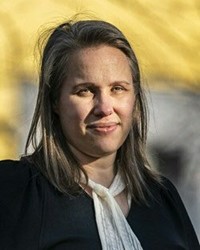
Dr. Laura Baams (Faculty of Behavioural and Social Sciences)
This project delves into why, despite growing acceptance, LGBTQ+ youth still face poorer wellbeing in Europe. Researchers will investigate if laws and policies have reduced bullying and discrimination against LGBTQ+ youth. They will also analyse videos on YouTube and TikTok to understand how LGBTQ+ youth experience stigma and identity online. Additionally, researchers will launch the first long-term study of LGBTQ+ youth in the Netherlands, gathering daily feedback on their identity development and experiences with discrimination. By combining these approaches, the project aims to shed light on the factors influencing LGBTQ+ youth wellbeing.
Decoding rare genetic variation: Unraveling isoform impact on rare diseases
Dr. Marc Jan Bonder (UMCG)
Many different rare genetic diseases exist and they collectively impact a significant portion of the population. Advances in DNA sequencing technologies have recently improved the diagnostic yield for these conditions. However, our limited understanding of what genetic variation outside of genes does, combined with our still limited understanding of what different isoforms of genes do, makes further diagnostic gains a challenge. In this project, I will systematically investigate how DNA differences affect isoforms, and I will utilize this knowledge to identify which DNA alteration is responsible for rare diseases in more patients.
How do microbes in our body evolve? And how does it affect our health?
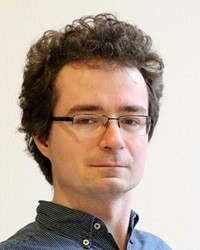
Dr. Ranko Gacesa (UMCG)
Our bodies are inhabited by trillions of microbes that aid us in digestion, protect us against hostile microbes, and perform other functions critical to our health. Like all living things, the microbes in our body change – evolve – over time. Yet this evolution, and its impact on our health, remain largely unknown. In this project, researchers will investigate evolution of gut microbes within individuals over the time-period of 15 years to answer which microbes change over time, how they change, and how their evolution differs between healthy individuals and patients with chronic gastrointestinal diseases.
The biochemist’s alchemy - enzyme-powered innovation in pharmaceutical production
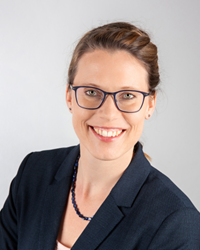
Dr. Kristina Haslinger (Faculty of Science and Engineering)
Many pharmaceutical drugs are based on chemicals found in nature. These chemicals are produced by plants, fungi, and bacteria with the help of specialized biocatalysts (enzymes). Biochemists can “borrow” these enzymes to build valuable chemicals on a large scale and in an environmentally friendly way. They can also produce new versions of such chemicals, with even more powerful pharmaceutical properties, by mixing and matching enzymes from different organisms in a combinatorial fashion. In this project, scientists will expand the catalogue of enzymes available for such a combinatorial approach and develop sustainable production routes for important pharmaceuticals.
HiWAVE - Natural hazard prediction with adaptive hierarchical wave models
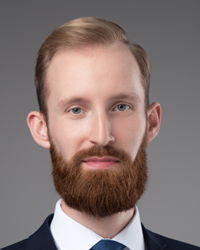
Dr. Julian Koellermeier (Faculty of Science and Engineering)
Natural disasters such as tsunamis, avalanches and floods are waves that we need to simulate to improve acute response and long-term risk assessment and prevention. This requires mathematical models that need to balance accuracy and runtime to be efficient.
HiWAVE aims at replacing available case-tailored models by new model hierarchies that allow the use of different models simultaneously to adapt simulations to an efficient combination of speed and accuracy. This will change the way we derive mathematical models and leads to highly efficient simulations that help us predict and prevent damage from future natural disasters.
Using a pump to store donor kidneys almost indefinitely
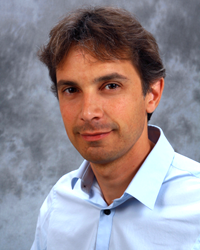
Dr. Cyril Moers (UMCG)
In this project, scientists will work on a radically new method to prolong the storage time of donor kidneys. They will use an advanced pump system to continuously circulate a novel fluid through the kidney. This fluid remains liquid while the organ is cooled to temperatures well below 0°C, thus enabling safe, long-term storage of whole donor organs. This would allow worldwide organ banking and exchange, and greatly improve organ-to-patient matching, thus improving outcomes. Moreover, transplants could be planned well in advance, thus reducing complications and enhancing access to transplantation.
Improving brain tumor surgery with linguistics
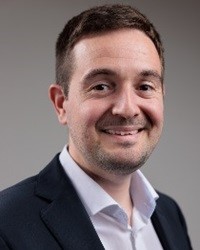
Dr. Adrià Rofes (Faculty of Arts)
To avoid difficulties with language production, adults undergoing brain tumor surgery are asked to name pictures of objects (e.g., bike). As a neurolinguist, I showed that naming pictures of actions (e.g., swimming) can detect more and different brain areas – this task is now used in several hospitals. Today, I have the knowledge and the network to study a majorly neglected process: language comprehension. I will implement two new tasks and use top-end neuroimaging and computational methods. This research will improve our understanding of language (in the brain) and provide better services to avoid language damage during surgery.
In addition to the above recipients, Judith Verweijen will also receive a Vidi grant. Verweijen made her application while she was still working at the Faculty of Arts. However, she has been working at Utrecht University since July 2024. She receives the Vidi grant for her research Centring Armed Organizations in the Climate-Conflict Nexus (CLIMCON). CLIMCON generates new insights into the multidirectional links between climate change and armed conflict. Comparing two areas of protracted armed conflict in the DR Congo-Burundi borderland, CLIMCON will examine how the emerging effects of climate change shape processes of armed obilization and how armed conflict in turn shapes vulnerability to climate change.
| Last modified: | 29 October 2024 4.18 p.m. |
More news
-
03 April 2025
IMChip and MimeCure in top 10 of the national Academic Startup Competition
Prof. Tamalika Banerjee’s startup IMChip and Prof. Erik Frijlink and Dr. Luke van der Koog’s startup MimeCure have made it into the top 10 of the national Academic Startup Competition.
-
01 April 2025
NSC’s electoral reform plan may have unwanted consequences
The new voting system, proposed by minister Uitermark, could jeopardize the fundamental principle of proportional representation, says Davide Grossi, Professor of Collective Decision Making and Computation at the University of Groningen
-
01 April 2025
'Diversity leads to better science'
In addition to her biological research on ageing, Hannah Dugdale also studies disparities relating to diversity in science. Thanks to the latter, she is one of the two 2024 laureates of the Athena Award, an NWO prize for successful and inspiring...
